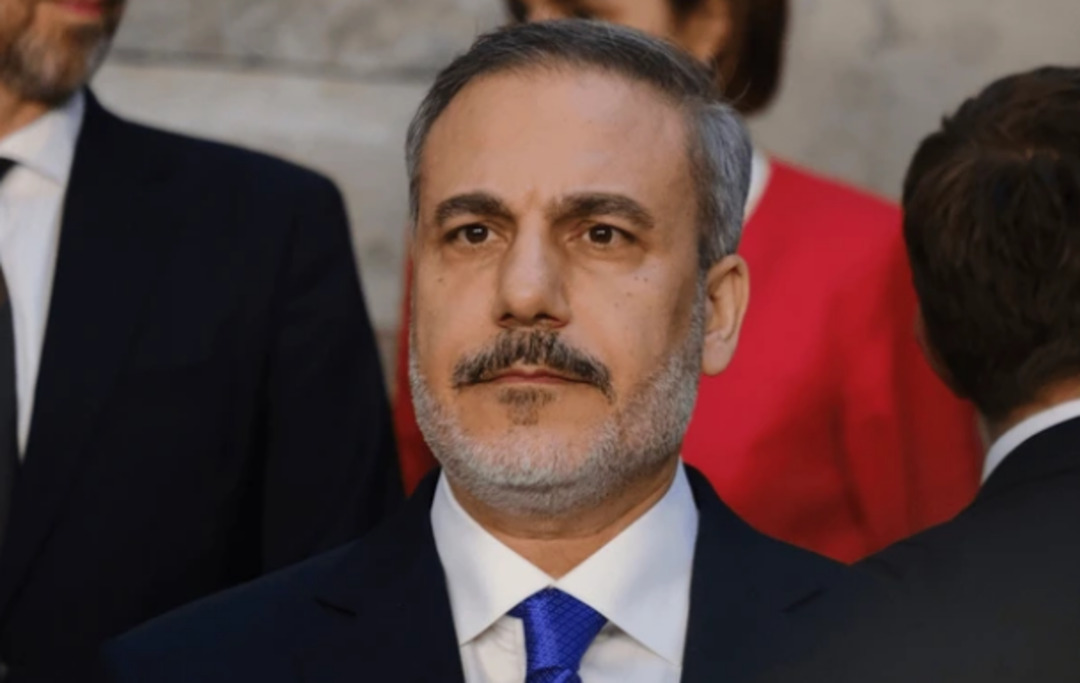-
Ankara Sets Impossible Conditions to Hide Its Intention to Stay in Syria
-
Linking Turkish withdrawal to impossible conditions like a new constitution and free elections shows Ankara's effort to legitimize its long-term occupation

In his effort to entrench Turkish military presence in Syria, Turkish Foreign Minister Hakan Fidan dismissed Syrian President Bashar al-Assad's desire for peace.
Speaking during his ministry's 2025 budget discussion in the Turkish parliament's Planning and Budget Committee, Fidan revealed his country's plan to prolong its presence in Syrian territory under various pretexts.
Regarding Erdogan's invitation to Syrian President Bashar al-Assad for a meeting to discuss normalizing relations between the two countries, Fidan indicated that the matter relates to political will, noting that Erdogan showed his intentions at the highest level, in an attempt to legitimize the Turkish presence.
Fidan added that "it is valuable for the leader of a democratic state (Erdogan) to make such statements," explaining that this step changed the rules of the game in the Syrian scene.
In his parliamentary speech, Fidan proposed impossible conditions for withdrawal from Syria that ensure Turkish forces' presence for years to come, such as adopting a new constitution, holding elections, and securing borders, adding that Assad's administration's position shows that "he does not want to return to peace."
He addressed Assad with additional conditions, saying: "Let free elections be held, and whoever comes to power as a result, we are ready to work with them," in a clear indication of Ankara's desire to change the Syrian regime before any potential withdrawal.
Fidan explained that Ankara's strategy in Syria is based on several pretexts to justify its military presence, including combating what he described as terrorist elements, ensuring Syrian territorial unity, pushing the political process forward, and facilitating Syrians' return to their country.
As part of Turkey's expansion policy, Fidan confirmed his country's position in confronting the "Kurdistan Workers' Party," pointing to Turkey's thwarting of the (Kurdish) "Self-Administration's" efforts to organize local elections in northeastern Syria.
It's worth noting that Turkey has controlled large areas in northern Syria since 2016 through successive military operations, and seeks to consolidate its influence by establishing permanent military bases and supporting loyal factions, despite repeated international demands for withdrawal and respect for Syrian sovereignty.
Levant-Agencies
You May Also Like
Popular Posts
Caricature
BENEFIT Sponsors BuildHer...
- April 23, 2025
BENEFIT, the Kingdom’s innovator and leading company in Fintech and electronic financial transactions service, has sponsored the BuildHer CityHack 2025 Hackathon, a two-day event spearheaded by the College of Engineering and Technology at the Royal University for Women (RUW).
Aimed at secondary school students, the event brought together a distinguished group of academic professionals and technology experts to mentor and inspire young participants.
More than 100 high school students from across the Kingdom of Bahrain took part in the hackathon, which featured an intensive programme of training workshops and hands-on sessions. These activities were tailored to enhance participants’ critical thinking, collaborative problem-solving, and team-building capabilities, while also encouraging the development of practical and sustainable solutions to contemporary challenges using modern technological tools.
BENEFIT’s Chief Executive Mr. Abdulwahed AlJanahi, commented: “Our support for this educational hackathon reflects our long-term strategic vision to nurture the talents of emerging national youth and empower the next generation of accomplished female leaders in technology. By fostering creativity and innovation, we aim to contribute meaningfully to Bahrain’s comprehensive development goals and align with the aspirations outlined in the Kingdom’s Vision 2030—an ambition in which BENEFIT plays a central role.”
Professor Riyadh Yousif Hamzah, President of the Royal University for Women, commented: “This initiative reflects our commitment to advancing women in STEM fields. We're cultivating a generation of creative, solution-driven female leaders who will drive national development. Our partnership with BENEFIT exemplifies the powerful synergy between academia and private sector in supporting educational innovation.”
Hanan Abdulla Hasan, Senior Manager, PR & Communication at BENEFIT, said: “We are honoured to collaborate with RUW in supporting this remarkable technology-focused event. It highlights our commitment to social responsibility, and our ongoing efforts to enhance the digital and innovation capabilities of young Bahraini women and foster their ability to harness technological tools in the service of a smarter, more sustainable future.”
For his part, Dr. Humam ElAgha, Acting Dean of the College of Engineering and Technology at the University, said: “BuildHer CityHack 2025 embodies our hands-on approach to education. By tackling real-world problems through creative thinking and sustainable solutions, we're preparing women to thrive in the knowledge economy – a cornerstone of the University's vision.”
opinion
Report
ads
Newsletter
Subscribe to our mailing list to get the new updates!






















